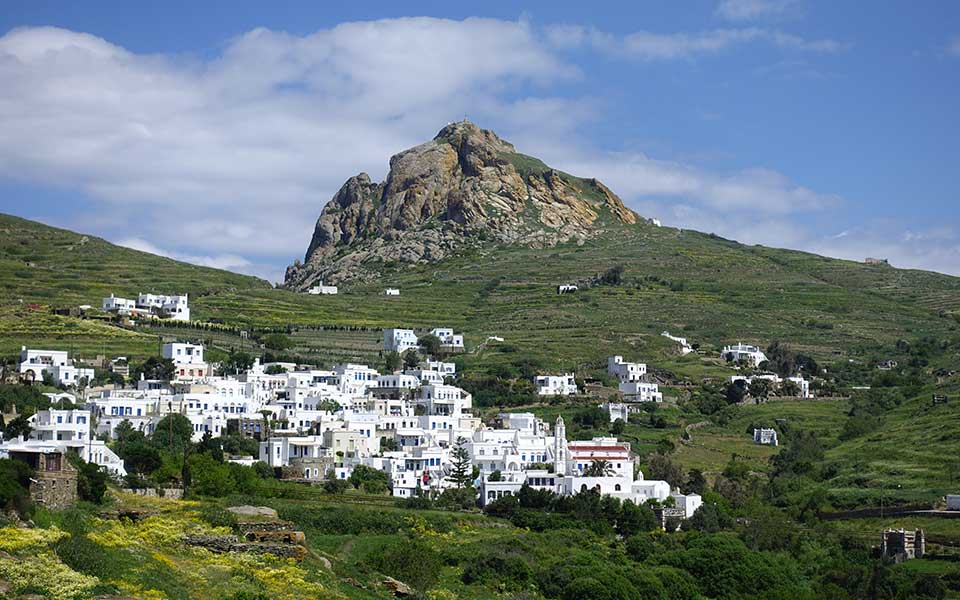It is impossible to visit Tinos and not be mesmerized by the vast granite rocks of Xobourgo. Compact and covered in lush greenery, the rugged mountain is emblematic of an island so identified with the Orthodox faith, thanks to the Virgin Mary, but we often forget it had a prehistoric, ancient, medieval past.
This imposing rock is a testament to the passage of time, from the first settlements to the continuous seaborne raids by pirates and the terrible conflicts between Turks and Venetians for domination in the Aegean. Its privileged location inland and its natural fortified form made Xobourgo a safe haven. Its very name, which contains the word “burgo,” meaning organized city, refers to a settlement that was built outside the walls.
Excavations by the University of Athens since 1995
Excavations have been carried out at the site since 1995 by the University of Athens, under the direction of Professor Nota Kouros, revealing an extensive and fortified ancient city and its cemetery. This is how the charming past of Tinos has become to be known, with a multitude of new finds uncovered by the archaeologist’s trowel.
The excavator will speak about these extremely interesting findings in the 63rd lecture, “Excavating the past and its people: A fortified settlement and its cemetery at Xobourgo on the island of Tinos,” presented online on March 31 by the Greek Archaeological Committee (UK). For 35 years, the institution has provided the opportunity for Greeks and Cypriots in the United Kingdom as well as British philhellenes and scientists to be informed first-hand about ongoing archaeological research in Greece.
The committee, founded by the late Mattis and Nicholas Egon, wanted to highlight the crucial role of archeology and to support students in the field with scholarships. Dr Zetta Theodoropoulou-Polychroniadis, the current chair of the committee, is continuing this important work, which includes two annual live lectures in the UK, now being held online due to the pandemic.
Professor Kouros will discuss the latest excavations in the lecture, including a newly-found site where ancestral worship was performed from the 10th to the 8th centuries BC. Another focus will be the small sanctuary of Demeter from the 5th century BC, located on the site of an older open-air sanctuary. Excavations at a third site, at the eastern end of the south side of the hill, revealed a cemetery from the Classical period, with tombs of all types and masonry structures, as well as some marble tombstones. Only one of them was found in situ, while the rest were built into churches and houses in the surrounding villages.
The lecture will take place on Thursday March 31, at 8 p.m. Greek time. More details can be found at www.gacuk.org.
This article was previously published in Greek at kathimerini.gr.











